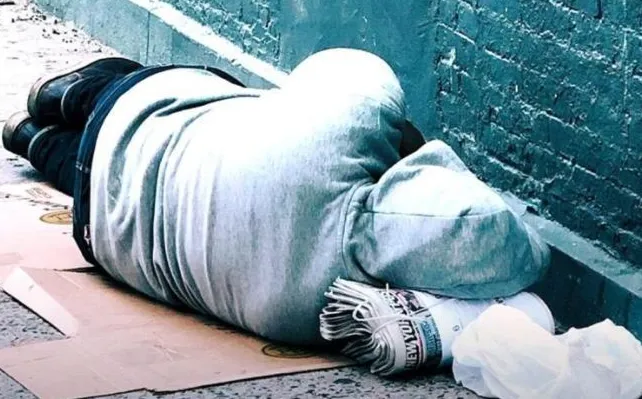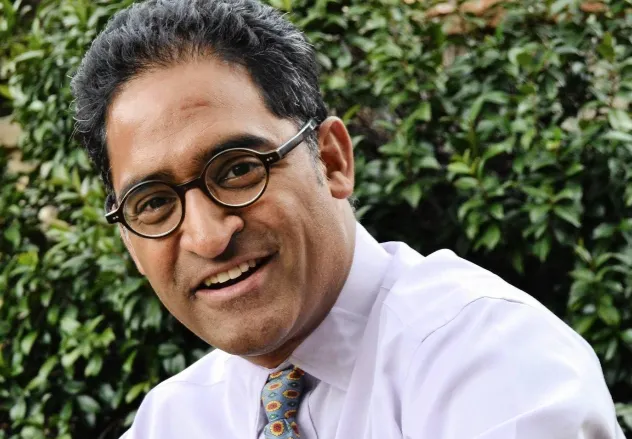The plight of Durban's homeless: a call for compassionate solutions
Problem never solved

It is not a crime to be homeless or to be poor, says the writer.
Image: U-Turn Facebook
AS THE nights become colder in Durban, I notice that more and more people are contacting the Denis Hurley Centre, increasingly conscious of the homeless on our streets and asking how they can help. That is very positive in a city where sadly many government officials seem much less concerned about the plight of our homeless fellow-citizens. Recently, the municipality has yet again been pursuing a strategy of "cleaning the streets".
In reality, this means harassing and molesting homeless people so they move from where they are – only for them to pop up in another part of the city.
The group that was in Albert Park has now re-emerged in Glenwood. But the group in Albert Park was only there because a few months before they were chased out from the railway lines. The problem is never solved, it is just moved around; and it is made worse because people lose their few belongings, their medicines and their IDs. We know from our clinic team of at least six people who have died as a result of the current strategy.
The positive concern that I see from the general public reminds me of the time during the Covid-19 lockdown, when the people of Durban responded generously to help the homeless.
Just one story among many: at the time, I was helping to run a pop-up shelter on the beachfront behind the Elangeni Hotel. One day a young Indian couple drove up to the gate in a smart car. It turned out they were from Grosvenor Court, the apartment complex that overlooked our homeless site. I was ready to respond to what I had expected to be their complaints about bringing down the tone of the neighbourhood. Instead, they had come to find out where they could help and returned the next day with burgers and chips for all our 200 residents.
During Covid-19, the eThekwini led the country in its response to care for, feed and house the city’s homeless community in record time. They listened to and worked with NGOs, local businesses, faith communities and homeless people themselves. Together we created a number of shelters, all in the city centre, all of manageable size, with social workers and health professionals, and a sense of care for these marginalised citizens.
I remember being shocked and delighted to hear from some of the metro police who were working on the city’s response, that their own perspective on homeless people had changed by the opportunity to interact with them one-to-one. Their job now was to protect the homeless, not to harass them. All of this was in stark contrast to Cape Town.
There, city officials ignored the advice of NGOs and refused to speak to the homeless. They spent a lot of money on a massive, unfriendly shelter, far outside the city for over 1 000 people to which they had to force people to move. And within a few weeks it had collapsed because most of the residents left it as soon as they could and returned to the streets of the city.
Scroll forward five years and eThekwini is now planning to repeat Cape Town’s mistake.
When challenged about their current strategy of pushing the homeless from area to area, city officials reply that that will be solved when they open their planned Sakithemba site for the homeless in Illovo. This, they claim, will host (or rather "hold") over 1 000 homeless people who will be moved there by the police.
But it is not a crime to be homeless or to be poor. The city will not be able to detain people there against their will and inevitably homeless people will come back to the CBD. Tens of millions of Rand will have been spent and nothing achieved.
The reason is that 85% of the people who are on the streets of Durban are young men from rural KZN who have moved to the city in search of work. eThekwini’s own research repeatedly confirms this and yet they believe that people will voluntarily stay in a place where there are no jobs and with no easy transport to the CBD. The municipality claims that people will stay there because they will be offering social work, training and healthcare.
But those same officials have failed to do that for the 400 people who are in the sites that they have been running in the CBD for the past five years. In fact, the women’s shelter, set up by eThekwini during Covid-19, no longer has functioning lights or showers or security – and that is a mere 1km from city hall. It seems optimistic to think that eThekwini will suddenly provide services for 1 000+ people who will be out of sight 40km away.
The irony is that a better solution is staring them in the face. It is what was started during the lockdown. More-over it is the strategy pursued, if not always consistently, by other metros across South Africa. They do not create large dumping grounds outside their cities, but instead smaller, manageable shelters within the CBDs since that is where people want to be in the hope of finding work.
In the best examples, these shelters do not just provide a place to sleep but also constructive support from professional social workers (not interns) whose job is, within 6 to 12 months, to enable someone to move on from the shelter to work or to reunite them with their families. And the best shelters are funded by government but run by empathetic NGOs who, unlike government officials, can spend time building trust with the residents and listening to them.
There is no shortage of empty government buildings in the CBD that could be used. But a building is only the start. Effective shelters do not just provide a roof, but rather create a temporary home where someone can turn their life around and re-enter society. Such a strategy is not cheap but, as other metros have shown, it can be effective. The eThekwini’s current strategy with police and private security and the plans for a massive out-of-town holding centre is also not cheap and is definitely not effective.
When they see the problem of homelessness in Durban, people cry “something must be done!” But what is the point of just doing ‘something’ when it patently does not work. Let us instead work together so that something good can be achieved.

Dr Raymond Perrier
Image: Supplied
Dr Raymond Perrier is Director of the Denis Hurley Centre in Durban, and Chair of the National Homeless Network.
** The views expressed do not necessarily reflect the views of IOL or Independent Media.
Related Topics: